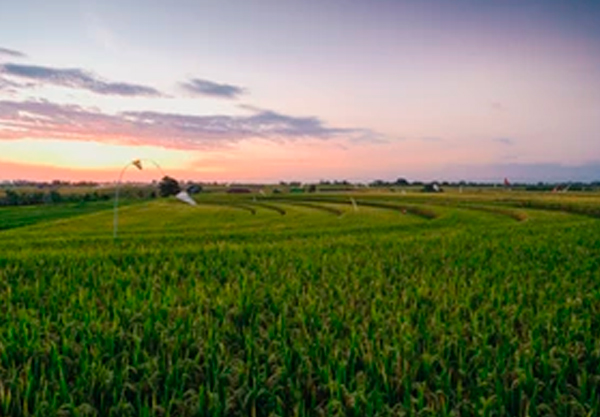
Seed treatment and climate instability? know more
Seed treatment and climate instability? know more More than 95% of soybean and corn seeds planted in Brazil are already protected through treatment.
Pest and disease control, protection in the initial planting stage and greater resistance to various stresses are some of the benefits provided by seed treatment. Quite widespread in the main Brazilian crops, the technique gains even more importance in the midst of adverse weather conditions registered in some of the main producing regions of the country.
The treatment consists of applying chemical and/or biological pesticides to the seeds, with the aim of controlling diseases and pests that can attack the crop at the beginning of its development.
More than 95% of soybean and corn seeds planted in Brazil are already protected through treatment, according to Embrapa, which demonstrates the relevance of the technology and the high financial return, given that the cost is relatively low for the producer. A study carried out by researchers from Embrapa Agropecuária Oeste that analyzed the investment in the technique over ten years showed that the expense with seed treatment corresponded to 2.2% of the total cost of producing one hectare of soybean crops in the period between the 2008/2009 and 2018/2019 harvests.
Seed treatment is an essential tool for protection against diseases and pests that threaten the initial phase of cultivation, the emergence of plants, according to Bruno Vilarino, Marketing Coordinator of the SeedGrowth Center, at Bayer. “The work of the farmer has become more challenging with each harvest, so it is important that he has the necessary support and a complete range of solutions to help him produce more, in the same area, in a more sustainable way and with higher profitability. And seed treatment is an important part of that set of solutions,” he says.
According to Vilarino, seed treatment is an efficient method of control as it prevents pests and diseases from damaging the seeds and seedlings, thus allowing to obtain an adequate stand, as it enables a better initial development of the crop, in addition to make it more uniform and more resistant to water and climatic stresses. “It is still a very versatile solution, which can be worked on in two different segments: Industrial Seed Treatment (TSI) and On Farm Seed Treatment (On Farm)”, he says.
“Industrial seed treatment is booming in Brazil and adds advantages related to greater treatment precision, maintenance of seed quality and reduced risk of exposure, contributing to the safety of the operator and the environment. The On Farm technique, on the other hand, is carried out directly on the farms, outside of a more controlled environment such as the industrial one”, explains the executive.
Corn seeds, for example, are routinely treated with chemical pesticides such as insecticides and fungicides, which helps in the development of the crop since initial pests can reach the plant soon after crop emergence. If there is no protection, it is possible to observe a reduction in the stand according to the insect infestation and the intensity of the attacks.
Count on Mecmaq to guarantee high quality seed treatment, through the On farm, Industrial and Research lines. The use of our machines is a result of great satisfaction to our customers, being a source of profitability combined with high profitability.

